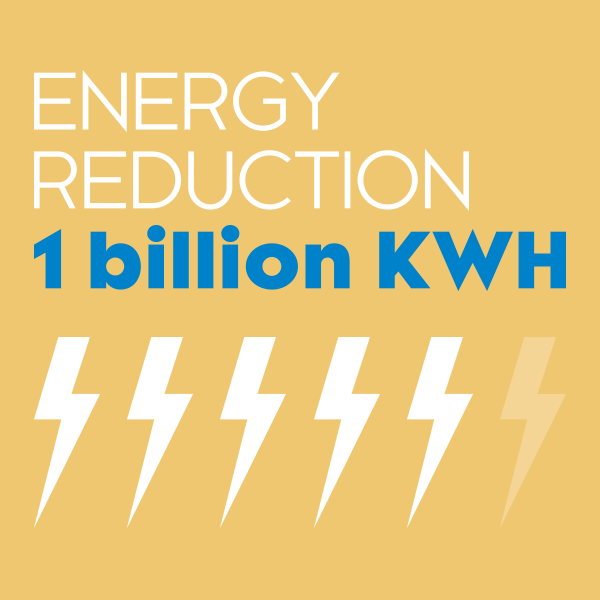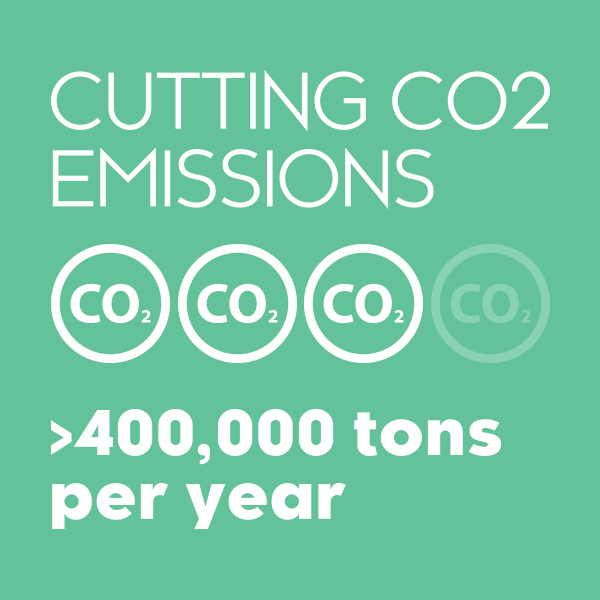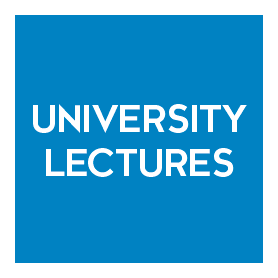SUSTAINABILITY
As an Emirati company, Tabreed takes seriously its role in the community and the nation at large. We take our lead from the government’s stated objective of reducing our nation’s carbon footprint and becoming “greener,” while supporting economic and social development.
REDUCING CO2
EMISSIONS
IN THE UAE & ACROSS THE GCC
On average in the UAE, cooling accounts for 70% of energy consumption during peak periods. This is a significant proportion of the total energy consumed in our nation, and therefore, the carbon dioxide (CO2) emissions generated.
By pioneering a more efficient means of cooling large scale, high density developments, known as district cooling, Tabreed is having a big impact on reducing energy consumption and cutting CO2 emissions, and enabling our nation’s sustainable development.
District cooling applies industrial scale to the cooling process, chilling water at a central plant and distributing it to buildings plugged into its network. This enables economies of scale and greater efficiencies than traditional air cooled chillers, as well as a reduction in noise and visual pollution.


To put things in perspective, in the UAE alone, Tabreed delivers over 684,000 RT of cooling to its clients. Due to being 50% more energy efficient than conventional air conditioning, Tabreed’s services translate into a reduction in energy usage by almost 1 billion KwH per year. This reduction of energy consumption for cooling brings about significant benefits to the environment by cutting CO2 emissions by more than 400,000 tons per year; or, the equivalent of removing 80,000 cars off our streets.
If we look at the GCC region as a whole, Tabreed delivers over 950,000 RT to its customers, resulting in reduced energy consumption of almost 1.2 billion KwH per year. This reduction eliminates over 570,000 tons of carbon dioxide from our atmosphere – the equivalent of removing 110,000 cars from our streets every year.
RESEARCH
& DEVELOPMENT
Tabreed strives to find new ways to improve the operating efficiencies in our plants. We have partnered with the Masdar Institute of Science and Technology (MIST), an independent, research-driven, graduate-level University focused on advanced energy and sustainable technologies, to launch a joint research and development (R&D) project that aims to enhance operational performance and reduce energy consumption in district cooling plants.
The current research project – optimal chiller plant control, phase-I – aims to create a ‘smart controller’ capable of intelligently and independently managing district cooling plants to improve operational performance and decrease energy consumption, with minimal human interference.
Tabreed and MIST are aiming to develop a software module that can be integrated with the district cooling plants’ control system to measure all external variables that impact the operational efficiencies of the plant, such as chilled water supply, return flow, outside temperature and humidity levels. The system will then automatically decide at what capacity major equipment such as chillers, water pumps and cooling towers need to operate at in order to meet customers’ cooling requirements in the most economical and energy efficient way.
One of Tabreed’s plants in Mohammed bin Zayed City, Abu Dhabi, was selected for the pilot project, which is hoped will ultimately yield results that will allow us to make further reductions in our carbon emissions.
COMMUNITY
At Tabreed, we strive to maintain a constant dialogue with our community, helping enhance their understanding of district cooling and the benefits it brings to the nation. We also seek to engage with national students to create opportunities for them to learn about, and pursue careers in, related fields such as engineering.
We have several key programs aimed at national students:

We make internships available to university students in their 3rd or final year of study in a number of fields including engineering, finance, communications, business development, and human resources.

Our senior management teams visits various engineering departments in a number of local universities and gives the students an in-depth look at the technology and mechanics that underpin a district cooling plant.
We open our plants up to the general public and university students to visit our plants to gain first-hand knowledge of how district cooling plants operate in order to enhance their appreciation of the technology that maintains climate control in our nation.

